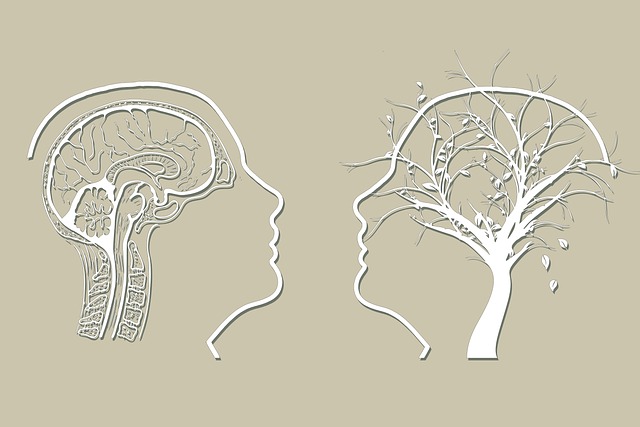TL;DR:
For adults who've experienced sexual abuse, RFM (Reconciliation, Forgiving, Moving Forward) therapy provides a holistic path to healing by addressing long-term impacts on emotional regulation and relationships. This approach combines mindfulness meditation with emotional regulation skills. Public awareness campaigns destigmatize the issue, encouraging survivors to seek support. Therapy involves creating safe spaces, mindfulness practices, group peer support, confidence-building techniques, and burnout prevention strategies. Regular assessments ensure tailored interventions for individual needs, fostering resilience and long-term healing.
“Resilience is a powerful tool for healing, especially for adults who have experienced sexual abuse. This article explores how RFM (Recovery-Focused Approach), a therapeutic method, can empower survivors to build resilience and recover. We’ll guide you through the process, from understanding the core principles of RFM and its significance in addressing adult sexual abuse, to providing a practical step-by-step guide for implementing resilience-building exercises. Additionally, we’ll discuss strategies for overcoming challenges and measuring the success of RFM implementation, offering valuable insights for therapists and survivors alike.”
- Understanding RFM and Its Relevance to Adult Sexual Abuse Survivors
- Implementing Resilience-Building Exercises: A Step-by-Step Guide
- Overcoming Challenges and Measuring Success in RFM Implementation
Understanding RFM and Its Relevance to Adult Sexual Abuse Survivors

Understanding RFM, or Reconsiliation, Forgiving, and Moving Forward, is paramount when addressing the needs of adult sexual abuse survivors. This therapeutic framework recognizes that healing involves a complex interplay of processing trauma, forgiving perpetrators, and finding ways to rebuild one’s life and sense of self. It understands that the impact of sexual abuse extends far beyond the initial event, affecting every aspect of a survivor’s being, from their emotional regulation to their ability to forge meaningful connections.
The relevance of RFM in therapy for adults sexual abuse survivors lies in its holistic approach. By incorporating techniques like mindfulness meditation and fostering emotional regulation skills, survivors can learn to navigate the complexities of their past experiences. Public awareness campaigns development around these topics further plays a crucial role in destigmatizing the issue and encouraging survivors to seek the support they deserve, ultimately contributing to their resilience-building process.
Implementing Resilience-Building Exercises: A Step-by-Step Guide

Implementing Resilience-Building Exercises: A Step-by-Step Guide
For adults who have experienced sexual abuse, resilience-building exercises can be transformative tools to enhance their emotional well-being and recovery journey. This process involves a series of structured activities designed to help individuals develop coping mechanisms, strengthen their sense of self, and cultivate a more positive outlook. The first step is creating a safe and supportive environment where survivors feel comfortable expressing themselves without fear of judgment. This often requires establishing clear boundaries and ensuring confidentiality.
Once the foundation is set, facilitators can introduce various exercises tailored to individual needs. These might include mindfulness practices to promote present-moment awareness and reduce flashbacks or traumatic memories. Additionally, group activities that encourage peer support and shared experiences can foster a sense of community. Over time, as survivors build resilience, they can learn confidence-boosting techniques to navigate challenges and develop effective burnout prevention strategies, particularly crucial for healthcare providers supporting trauma victims. Community outreach programs can also be implemented to expand access to such therapeutic interventions.
Overcoming Challenges and Measuring Success in RFM Implementation

Implementing RFM (Resilience, Strength, and Mindfulness) exercises can be transformative for adults who have experienced sexual abuse, helping them overcome profound challenges and build resilience. These exercises are designed to strengthen coping skills development, enhance emotional intelligence, and foster a sense of safety. Through structured programs, survivors can learn effective strategies to navigate trauma-related triggers, manage intense emotions, and cultivate mindfulness practices such as meditation. This process allows them to gain control over their lives, reduce symptoms of anxiety and depression, and improve overall well-being.
Measuring success in RFM implementation involves tracking progress through regular assessments and self-reporting. Observing improvements in participants’ ability to cope with stressors, regulate emotions, and maintain focus during mindfulness meditation sessions can serve as key indicators. Additionally, qualitative feedback from survivors themselves is invaluable, as it provides insights into their personal growth, newfound sense of empowerment, and enhanced resilience over time. This holistic approach ensures that the therapy aligns with the unique needs of each individual, fostering a supportive environment for healing and recovery in the long term.
Resilience is a powerful tool for healing and recovery, especially for adults who have experienced sexual abuse. By implementing RFM (Resilience-Based Therapy) and its associated exercises, survivors can navigate their traumatic experiences and build strength. This structured approach, as outlined in the steps and challenges discussed, offers a promising avenue for therapy, enabling individuals to reclaim their lives and foster resilience. Embracing these strategies can significantly contribute to the well-being and growth of adults seeking healing from sexual abuse.









